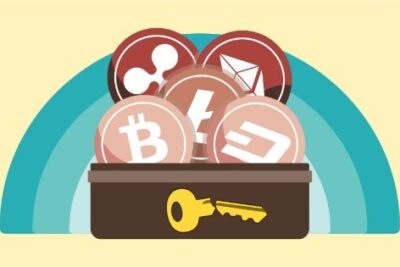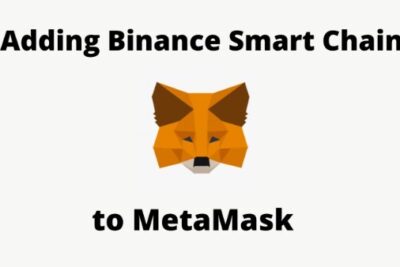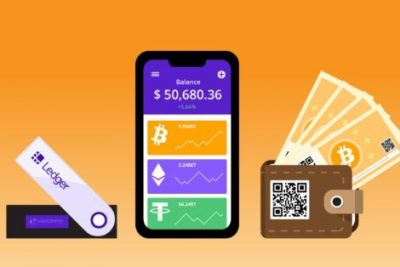

What Is A Non Custodial Wallet? Top Best Non Custodial Wallets (2022)
30 July 2022
Have you ever wondered how your crypto is stored? There are several sorts of crypto wallets that token holders may use to keep their crypto assets. However, wallets may often be divided into two categories: custodial and non-custodial.
A custodial wallet, such as Binance Custody, is a service that maintains your funds in custody and owns the private key to your wallet. Your standard Binance account doubles as a cold storage wallet. Using a non-custodial wallet, you have exclusive control over your assets. MetaMask and the Binance Chain Wallet are non-custodial wallet examples.
Both custody-based and non-custodial wallets have advantages and disadvantages. Let’s examine their distinctions so that you can choose when to employ one over the other in this bePAY insightful post.
What Is A Custodial Wallet?
Custodial wallets are those services provided by a centralized entity, such as a cryptocurrency exchange. Custodial wallets provide a number of advantages, including less user responsibility for private key maintenance. When a user outsources wallet custody to an institution, they are effectively outsourcing their private keys.
The user is not responsible for safeguarding the private key to the wallet, and so relies on the company to keep the private key secure.
When a user desires to transmit coins from a custodial wallet, they just log in with a username and password, enter the public key of the location to which they intend to send coins, and the company is responsible for entering the private key to complete the transaction.
This presents an exceedingly straightforward answer for the customer, but it also introduces a new level of danger. Many exchanges, including Mt. Gox, QuadrigaCX, BTC-e, and Bitstamp, have been compromised.
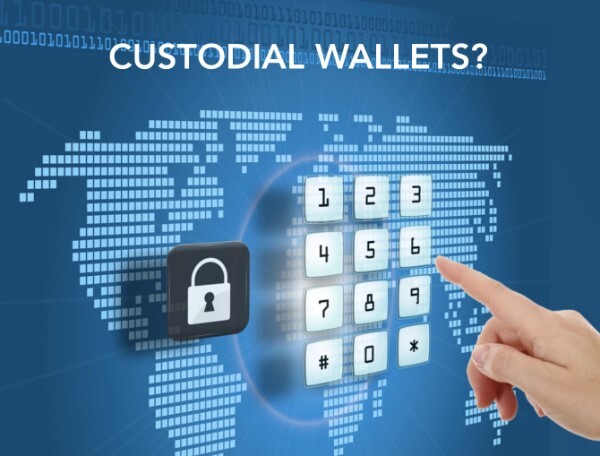
What is a custodial wallet?
In recent days, as a result of the escalation of the war in Ukraine, several governments have restricted the ability of custodial wallets to complete transactions for residents in particular regions. Even more recently, the Canadian government moved to freeze the assets of a number of protest-funding supporters.
>> Quite new with crypto – more definition about crypto wallet
What Is A Non Custodial Wallet?
“Not your keys, not your crypto” is an ancient adage in the crypto community, which basically states that the owner of a private key is the only genuine and verifiable owner of the money in its associated wallet. Some crypto users argue that this implies users using custodial wallets do not “own” their coin since they do not own the private key.
With non-custodial wallets, cryptocurrency users have full control over their private keys and assets. Non-custodial wallets tend to be a little more technically sophisticated than custodial wallets, hence they are often preferred by crypto users with more expertise.
Several forms of non-custodial wallets are web, but there are a few more. Software wallets store and encrypt private keys on the hard disc of the computer. The safest kind, however, is a hardware wallet. The only time a hardware wallet is online is when it is linked to a computer or mobile device.
The signing of transactions with the private key occurs on the device itself and is only submitted to the blockchain for confirmation after the device is back online. This makes non-custodial hardware wallets essentially hacker-proof.
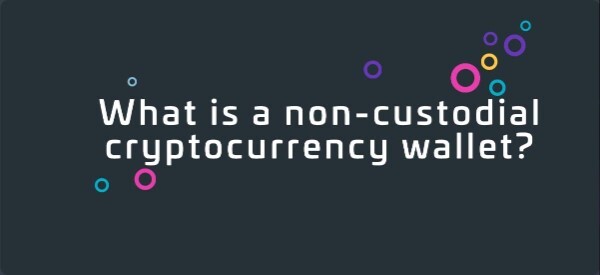
Non-custodial wallet definition
Users using non-custodial wallets are allowed to act as their own bankers, but with this freedom comes more responsibility. If you lose your password for a custodial wallet provider, you may reset it by sending a few emails and perhaps proving your identity. However, losing your hardware wallet or the private key might prevent you from accessing your cash.
Many providers of non-custodial wallets supply customers with a recovery phrase or “seed phrase”. This phrase is comprised of 12 to 24 random syllables and serves as a backup password recovery technique in the event that a wallet is lost, erased, or destroyed.
However, this phrase should be protected with the same vigilance as your private key, since anybody in possession of it will be able to access your account. This is the most significant disadvantage of non-custodial wallets. If you lose your private key, wallet, and seed phrase, it will be impossible to retrieve your cash.
>> Recommended: Read more about seed phrase in crypto
Custodial Vs Non Custodial Wallet
The list of criteria below will show how custodial vs non-custodial wallets are compared with each other.
Private Key Custodian
Who controls the private key is the biggest difference between custodial vs non-custodial wallet. Third parties handle the private keys for custodial wallets. In non-custodial wallets, users act as blockchain custodians.
Creating non-custodial blockchain wallets allows consumers to be their own banks (also known as self-custodial wallets).
>> Learn more ideas on what are private keys
Transact
Transaction type is another consideration when comparing custodial and non-custodial crypto wallets. Non-custodial chain transactions are real-time. The custodial wallet is different. Again, the former leads.
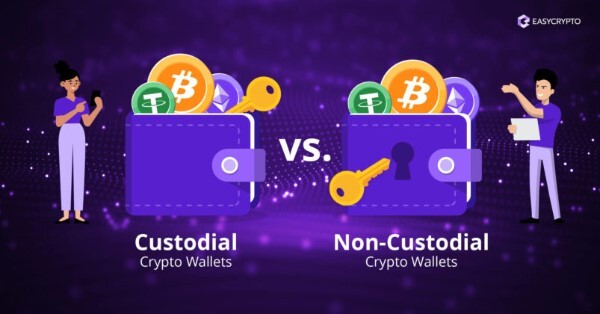
Basic traits of custodial and non-custodial wallets
Security
Custodial online crypto wallets protect sensitive customer data in hot and cold storage, which is commonly compromised. Unless the authorities take effective security measures, custodial security is minimal. Non-custodial crypto wallets save all user data. This decreases the chance of data theft until the user discloses the information or their device is lost. Non-custodial wallets triumph again.
Backup/Recovery
Self-custodial or non-custodial crypto wallets lag behind custodial ones in backup and recovery. Private keys are kept in custody wallets. So, if you lose data access, you may request a third party. Non-custodial wallets where you are the lone authority prevent this.
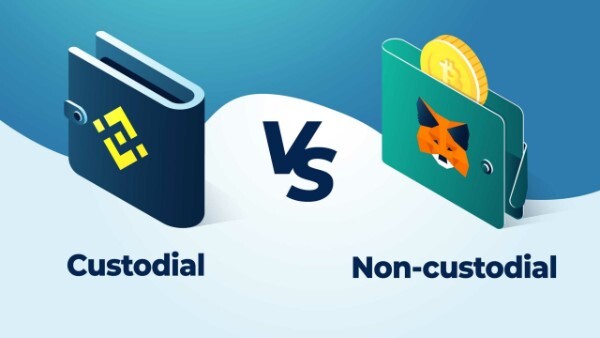
Custodial and non-custodial comparison
Offline Access
To access your funds and data, connect to your custodial wallet and contact centralized authorities. Internet access is crucial. Non-custodial wallets don’t need this. Non-custodial wallets are superior for real-time blockchain development.
Prospective
Non-custodial wallets will continue to gain an advantage over custodial due to increased data breach instances and consumers becoming more privacy-conscious.
Pros And Cons Of Non Custodial Wallets
It’s extremely probable that the first time you buy crypto, you’ll wind up with a custodial exchange crypto wallet, which is the most common kind of web-based crypto wallet. In this instance, the exchange acts as your custodian, holding your keys and being responsible for safely safeguarding your cash.
It is imperative that you use a trustworthy custodial wallet, such as those provided by major U.S. crypto exchanges, where the bulk of client money is stored in highly secure cold storage hardware wallets.
Even while a custodial wallet may be deemed less safe than a non-custodial wallet, many people prefer them since they involve less responsibility and are often handier. If you do not take the necessary safeguards, losing the password to a non-custodial wallet might be financially ruinous.
However, if you forget the password for your Exchange account, you may likely reset it. Follow the exchange’s suggested security steps to secure your cryptocurrency wallet’s digital assets.
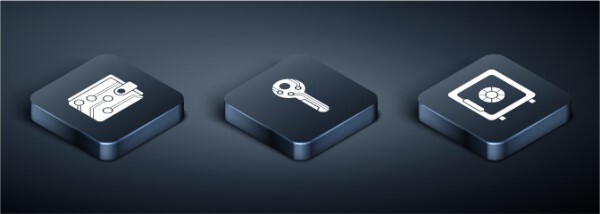
Some benefits and drawbacks of non-custodial wallets
Investing in crypto ETFs and ETPs is another custodial wallet alternative. These more recent choices are gaining traction, particularly among institutional investors wanting more exposure to cryptocurrencies and tokens.
They provide a way to invest in cryptocurrencies that do not need key management or blockchain transactions. However, they charge higher costs and only give access to a subset of the cryptocurrencies and trading pairs available on exchanges.
Top Best Non Custodial Wallets
Look at the top best non-custodial wallets list below which are divided into two kinds of hardware and software wallets.
Best Noncustodial Hardware Wallets
Fully separated hardware makes the best non-custodial wallets more secure. This protects your PC or linked device. Take a look at these hardware wallets.
Ledger
Ledger is the greatest noncustodial wallet. They make the popular Ledger hardware wallets. Ledger Live, a free desktop program, lets you transfer and receive bitcoins, monitor your balance, and manage all your Ledger devices. Ledger provides the Nano X and Nano S hardware wallets.
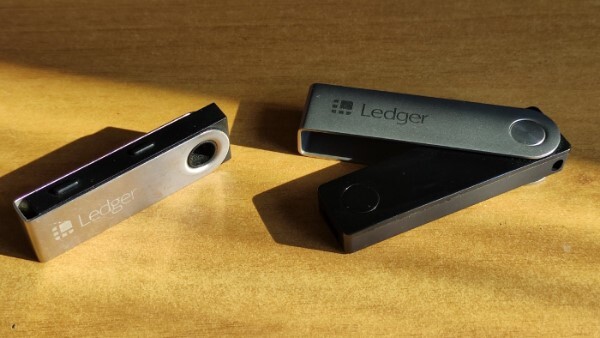
Ledger non-custodial wallet
Ledger’s flagship wallet is the Nano X. It can handle 100 crypto assets concurrently and 1,800 tokens. The Ledger Nano X’s OLED display and Bluetooth connectivity let you confirm transactions without a USB cord.
Ledger Nano X: Costs $119, but it provides good digital asset security in a stylish form.
Ledger Nano S: At $59, it’s the finest value. It has an intuitive interface and a minimalistic design. Ledger Nano S is compatible with various cryptocurrencies.
Trezor
Trezor pioneered hardware crypto wallets and has a great reputation in the industry. Only Trezor wallets support ERC20 tokens natively. Trezor firmware updates typically erase the whole wallet. This might be alarming for novice users, but you can quickly recover your wallet using your backup phrase. Trezor provides two hardware wallets, Model One and Model T, like Ledger.
The Trezor Model T has the same characteristics as the Model One, but with a big touchscreen. The touchscreen enables users to input their seed words without a computer. Inputting your seed phrase on a malware-infected PC is dangerous.
The Trezor Model T reduces hacking dangers by only enabling you to input the seed phrase via the touchscreen. The gadget isn’t linked to the Internet and is thus malware-free. The Model T supports more coins than Model One. It is $170, however.
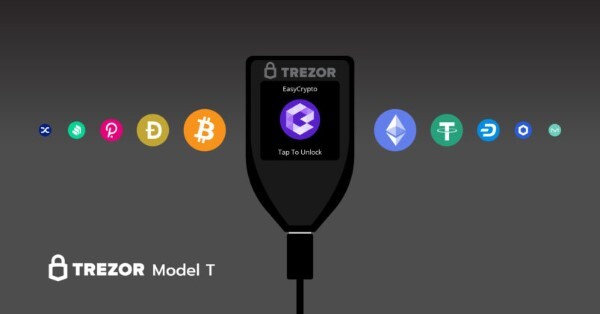
Trezor non custodial wallet
Trezor Model One is the first and most respected hardware wallet. It’s user-friendly and supports over 1,000 coins. Only Ripple Labs’ XRP isn’t supported. The $55 Trezor Model One is an inexpensive one.
AirGap
AirGap is a smartphone-based bitcoin hardware wallet. It’s a two-step mechanism that uses outdated, non-Internet-connected cellphones to store and approve transactions. A conventional smartphone with Internet access prepares or initiates transactions, which the old smartphone signs or authorizes. This technique safeguards digital assets.
AirGap has two apps, AirGap Vault and AirGap Wallet. The previous phone has AirGap Vault. This smartphone should be “air-gapped,” making it more secure. The AirGap wallet may be loaded on any Internet-connected smartphone to initiate transactions and check your portfolio.
For enhanced security, utilize two phones with these applications. iOS and Android have both applications.

AirGap non-custodial wallet
BitBox
BitBox is a beginner-friendly multisig hardware wallet. It utilizes a micro SD card instead of a seed phrase for backup. This is one of the quickest backup processes among our top noncustodial wallets. Quick setup, easy UI, and in-app instruction are also excellent.
BitBox presently supports BTC, ETH, ETC, LTC, and ERC20 currencies.
BitBox’s security measures protect your digital assets. Each transaction is manually validated using a device button. Two-factor authentication (2FA) and encrypted USB communication are included. BitBox is $149.
Coinkite’s Coldcard is a multisig wallet. Coldcard is a Bitcoin-only custodial wallet with micro SD backup, decoy wallets, pins, and a lockout timer.
Coldcard, a $120 hardware wallet, supports air-gapped activities. You can set up, fund, and transfer cryptocurrency without connecting the device to the internet.
Coldcard’s size supports a complete numeric keypad, making it simple to operate. It’s one of our top noncustodial wallets for hardware wallet fans.
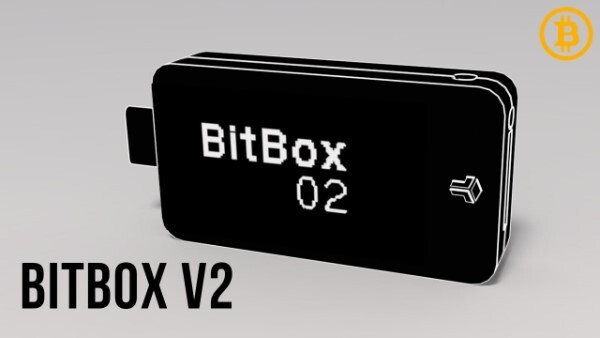
Bitbox non-custodial wallet
Non Custodial Wallet Software
Software wallets are convenient but less secure than hardware wallets. Within the app, users may buy, swap, and spend crypto. Free software wallet programs are great for novices on a budget.
MetaMask
MetaMask is the easiest noncustodial wallet to use. MetaMask is a crypto wallet plugin for Firefox, Chrome, and Brave. MetaMask only supports Ethereum and holds ERC20 token keys. MetaMask lets users access Ethereum DApps.
These words and seed phrases employ hierarchical deterministic settings to back up MetaMask wallets. Entering the seed phrases in the exact sequence restores lost account information. Open-source MetaMask code is constantly updated. Coin purchase is another great function. MetaMask links to Coinbase and ShapeShift for Ether and ERC20 token trading.
MetaMask encrypts private keys on your browser, not a distant server, for security. You have control over both your private and public keys. Online wallets aren’t as secure as physical or paper ones. MetaMask stores tiny quantities of cryptocurrency and tokens for exploring Ethereum DApps.
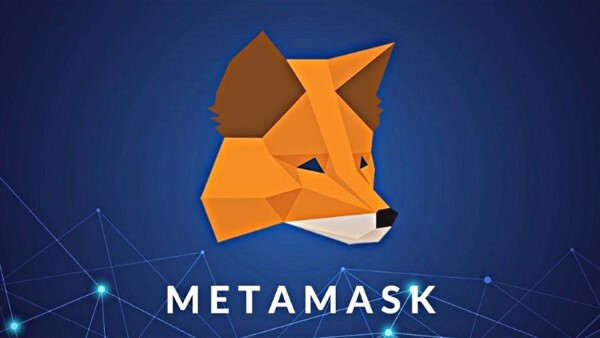
Metamask non-custodial wallet
ZenGo
ZenGo promises to be the first multi-currency noncustodial software wallet. ZenGo is simple to use on iOS and Android. ZenGo lets you exchange Bitcoin, Ether, and Binance currencies for a fee. It allows credit card and Apple Pay purchases.
ZenGo’s threshold signature mechanism is unique among noncustodial wallets. It’s a high-level security mechanism that separates your private key. Part is stored on its servers and part on the user’s phone. An exchange needs two parties.
ZenGo maintains a user’s private key in the cloud and uses face recognition to recover it if the device is lost. The ZenGo app’s clean, straightforward user experience is meant for newcomers.
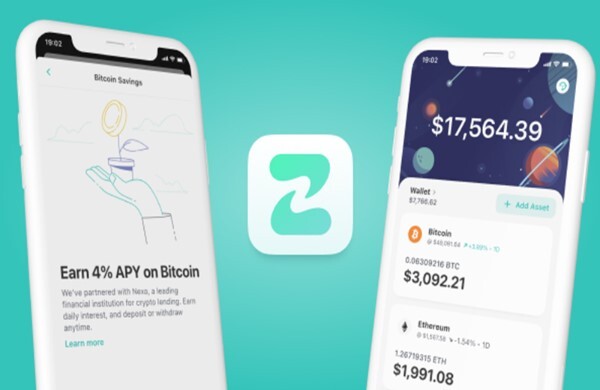
ZenGo non-custodial wallet
BitPay
BitPay is a noncustodial, open-source Bitcoin wallet that combines security and simplicity. It has an integrated Bitcoin exchange. Bitpay wallet provides a BitPay Visa Card that converts BTC to USD and is accepted internationally. BitPay’s Visa Card makes it a top non-custodial wallet for crypto traders.
BitPay’s multisig feature lets users verify transactions on up to 12 devices. BitPay offers 2FA with Google Authenticator and secures consumers using Payment Protocol. Payment Protocol verifies unknown address payments.
The BitPay app is well-designed and easy to use. Frequent transactors will appreciate the built-in exchangers and Visa Card.
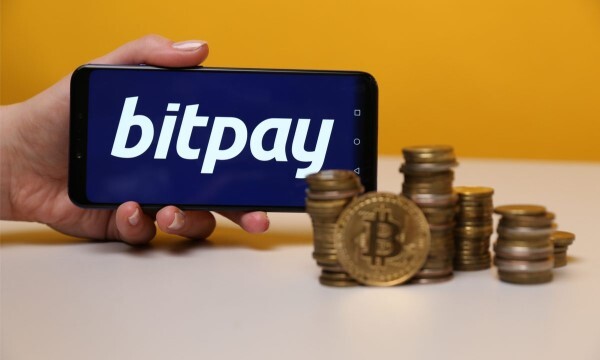
BitPay non-custodial wallet
Trust Wallet
Trust Wallet is a popular noncustodial wallet. Trust Wallet simplifies managing and securing coins. iOS, Android, and desktop support.
Trust Wallet accepts a broad variety of cryptocurrencies and provides numerous ways to acquire crypto, including cards. You may stake and rapidly swap crypto while retaining privacy and security. You can check prices and charts on your phone. Moreover, Trust Wallet organizes NFTs, art, and collectibles. Trust Wallet lets you utilize and discover DApps.
App security includes fingerprint and PIN code scanning. Trust Wallet doesn’t keep user data. Instead, it stores data on users’ devices, giving them control over their keys. Trust Wallet supports 40 blockchains and 160 cryptocurrencies. It’s a safe, adaptable software wallet for most people.
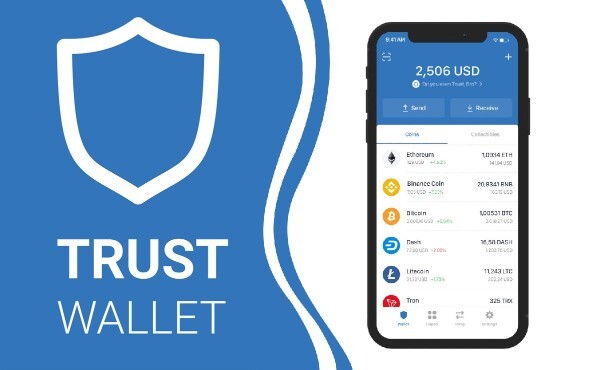
Trust Wallet as a non-custodial wallet
FAQs About Non Custodial Wallet
How Secure Are Self Custody Wallets?
Are self-storage wallets safe? Self-custodied Bitcoin wallets are just as secure as your ability to safeguard your private key. Your wallet is protected by a mix of software, hardware, and standard security techniques such as physical access.
Can An Offline Wallet Be Compromised?
This wallet can only be used while connected to the Internet. However, since the keys are saved on the computer itself, there is a risk of theft if the fraudster has physical access to your machine.
Is An Unlocked Wallet Preferable?
Non-custodial wallets are the ideal alternative for consumers that want complete control over their cash. Since there are no middlemen, crypto may be traded straight from wallets. It is a viable solution for experienced traders and investors who know how to handle and secure their private keys and seed phrases.
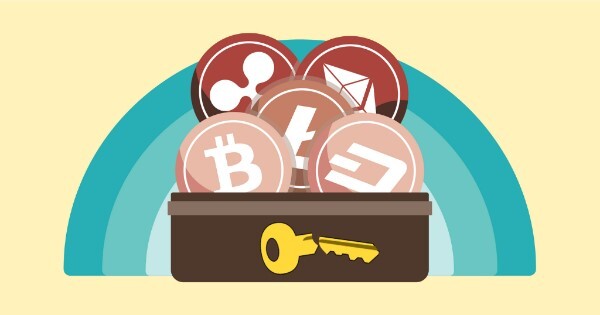
FAQs about non-custodial wallet
Closing Thoughts
Wallet under custodial control or wallet not under custodial control, what will you choose? The majority of crypto users utilize both, however it depends on your requirements. Consider a non-custodial wallet if you prefer having complete control over your assets or just want to leverage blockchain technology to communicate with DeFi apps. You may search for dependable custodial wallet service providers if you want a service provider to handle your storage requirements while you trade or invest.
Regardless of whether you are using a custodial or non-custodial wallet, you should always be cautious and follow best practices to protect your cash.

Ultimate Guide On How To Use Polygon Bridge
30 June 2022
Step By Step Guide Of How To Add Polygon To MetaMask
16 June 2022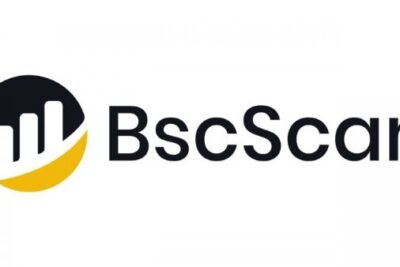
What Is BSCScan? Ultimate Guides For Newbies
29 March 2022